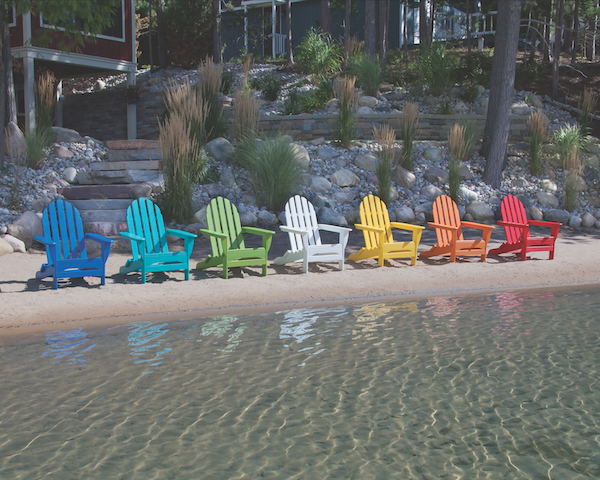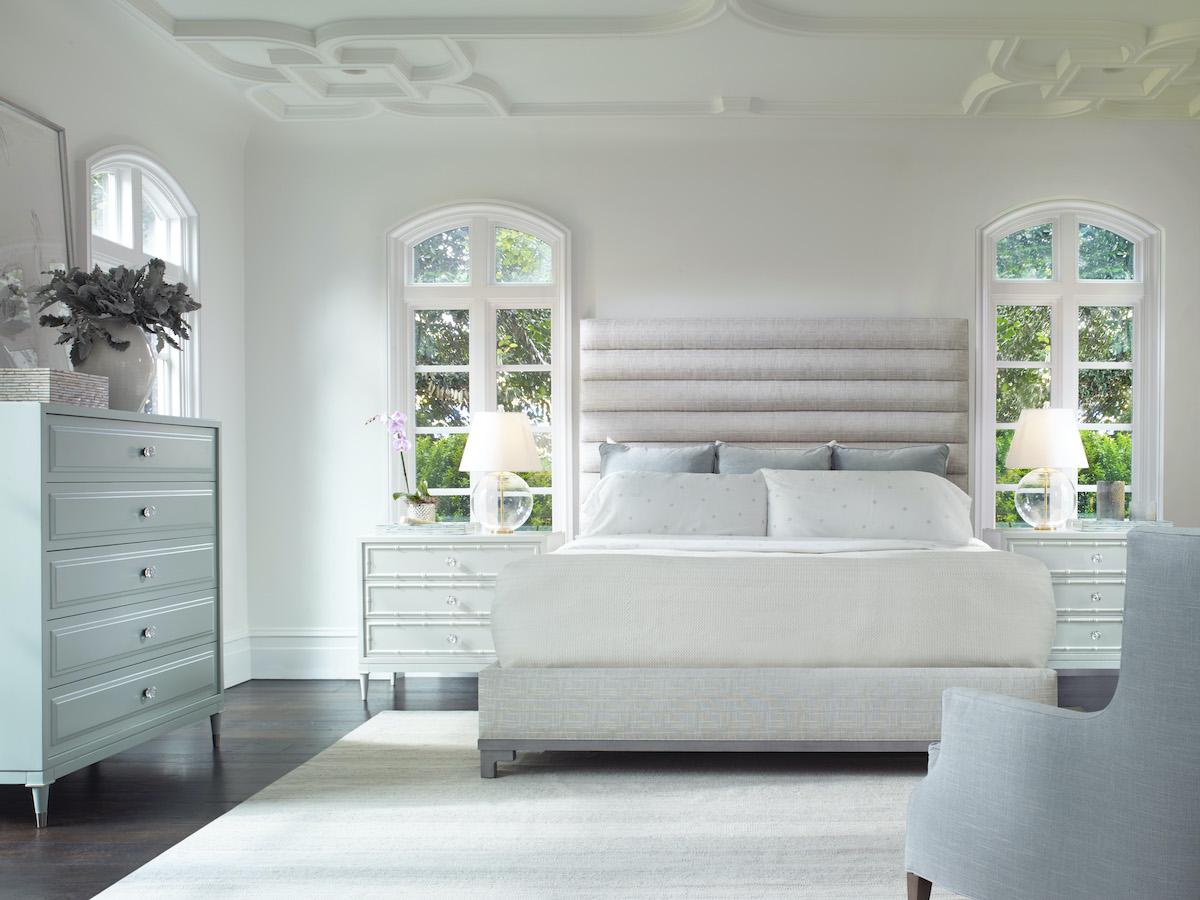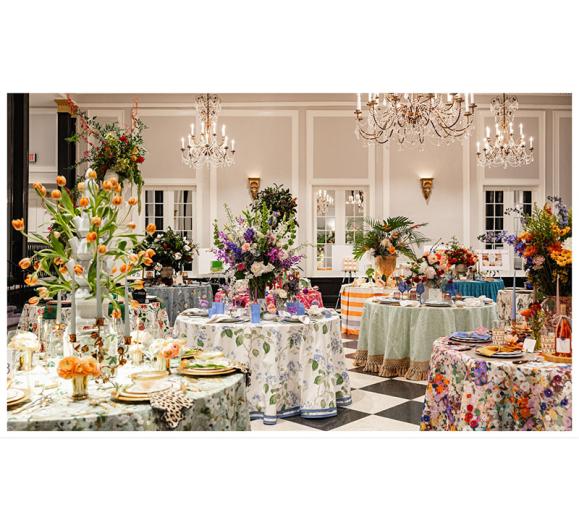The coronavirus pandemic has disrupted international supply chains, and now that production and shipping are getting back online, there’s plenty of catch-up to be played. According to the National Retail Association and Hackett Associates’ Global Port Tracker, imports at major U.S. retail container ports during 2020 are expected to see their lowest totals in four years.
As retailers shifted their operations to the web and many designers continued to see steady business, both groups were at the mercy of their vendors, most of which either stopped operations completely or significantly modified their processes. For those waiting on product from overseas, lead times soared.
“Supply chain is perhaps not something that many people think about, but as was said recently to me: ‘You can’t sell what you can’t get,’” says Comer Wear, Vice President of Marketing for Century Furniture.
Domestic manufacturers, such as Century, had a leg up on those who manufacture internationally. Even with modified processes in their facilities, they were able to quickly deliver custom furnishings to keep designer business moving and retailers stocked. But these American-made advantages existed before coronavirus, and they will continue to exist long after the pandemic is over.
Customization and Quality
Design clients, particularly affluent ones, tend to prefer furnishings that are unique, high-quality and customized to their exact specifications. Domestic manufacturing is one way to ensure all of their needs are met.
“From a design standpoint, products must be scaled and tailored to American sensibilities,” says Andy Bray, President of Vanguard Furniture, which has been producing upholstered furniture and casegoods from western North Carolina for 50 years. “Customizable furniture is especially important to an American mindset that perceives its home as the ultimate form of self-expression. They desire furniture of distinction because they value their independence and individuality.”
Without an ocean standing between designers and retailers and their products, lead times on custom furnishings are minimal, compared with goods produced overseas.
“Traditional off-shore models are typically based on inventory plans, which limit what the customer has access to,” says Lindsay Schleis, Vice President of Business Development for Polywood. “Our U.S.-based agile manufacturing model is known for fast turnaround times across a large assortment of products driven by real-time customer demand.” Polywood’s HDPE outdoor furniture is produced in northern Indiana.

This quick turnaround is ideal for the American consumer, says Bray.
“Americans prize immediacy,” he says. “They not only want things made to order, but they want them quickly and efficiently. They are not willing to wait six months to a year for something to be made. Even for custom items, six weeks is their limit.”
Polywood’s typically short lead times increased during the coronavirus crisis, but Schleis says the company has a plan to manage the increased demand into next year.
“We’ve added shipment carriers, changed our manufacturing labor ratios per cell, extended lead times beyond our traditionally quick and fast deliveries and so much more,” she says. “These changes have happened under the pressure of increased demand due to consumers spending more time at home. We’re forecasting continued growth through 2021 and have exciting plans in place to help us meet the growing demand of our brand. In addition to capital expenditures that will increase our production and distribution capacity, we’re moving toward an in-stock program that will allow us to continue quick delivery on core items in our assortment.”
Talent Search
Not only is the turnaround time on custom pieces quicker, the artisans and craftspeople also have the experience and skills to create quality furniture that lasts. But for manufacturers in the Hickory, NC, area, where much of the country’s furniture production takes place, there has always been one major challenge.
“Our single biggest challenge both before the pandemic and coming out of it is availability of skilled craftspeople,” Wear says. “We are having difficulty finding upholsterers, seamstresses and other talented craftspeople to fill our open positions.”
In 2010, to combat this challenge, Century teamed up with Vanguard, Lee Industries, Lexington Home Brands and Sherrill Furniture to create the Furniture Academy. The human resources departments of these five manufacturers developed a curriculum to train those interested in a career in the furniture trade. Today, the Furniture Academy exists as an eight-week program at Catawba Valley Community College. Held in a 40,000-square-foot facility that replicates an upholstery factory, students are taught soft skills in a classroom setting, and then work in the factory environment at night. Classes are taught by current and retired local upholstery technicians.
“The good news is we’re graduating up to 150 people a year to industry jobs,” Bray says. “The bad news is we currently need to fill about 1,000 new positions a year in our area to allow for growth and to replace retirees.” He says future plans include expanding the program to eight hours a day to accommodate more students.
Manufacturing in these facilities currently looks a little different than it once did, due in no small part to COVID-19.
“Our employees’ well-being and safety is always our top priority, and so overnight we had to rethink our work flows and how we could create spacing throughout our facilities to allow for distancing,” Wear says. “In addition, we staggered start times to ensure people were not gathered at time clocks and created mandatory temperature checks and sanitation stations throughout every operation.”
Vanguard instituted similar protocols, including temperature checks, socially distant workstations and Zoom meetings. Bray says that this new normal is changing the relationships Americans have with their homes.
“More than ever, Americans view their home as a haven of comfort and of safety,” he says. “Since the emergence of COVID-19, the number of people talking about home renovation on social media has been double that of normative levels. Americans have used this unusual period in history to declutter and create the spaces they have been putting off until they ‘had the time.’”
This continued focus on the home, particularly the home office, means almost guaranteed demand for home furnishings. For retailers, stocking American-made furnishings can mean higher profits, as well as stronger customer relationships.
“From an economic standpoint, [stocking domestic goods] raises the average purchase price, and hence the profitability,” Bray says. “But perhaps the greatest difference is what we call the domino effect. Once a truly magnificent piece of furniture is placed in the home, the other furnishings look shabby by comparison, which leads to incremental sales.”
Ultimately, by specifying American-made furniture, designers and retailers are expressing their desire for quality, customizable pieces that also support U.S. job growth.
“We believe that our customers recognize the value and benefits of creating one-of-a-kind, handcrafted furniture and are willing to invest in having pieces made for their home that will stand the test of time,” Wear says. “In addition to the ability to make furniture with seemingly infinite possibilities, we pride ourselves on our culture of taking care of our customers and taking care of our local community.”







